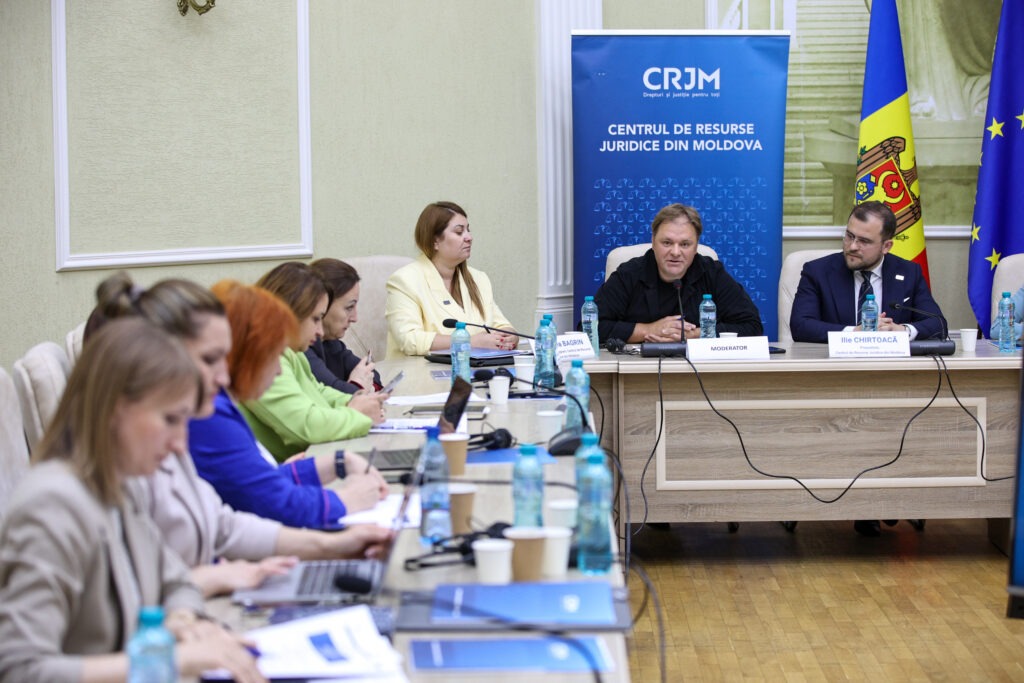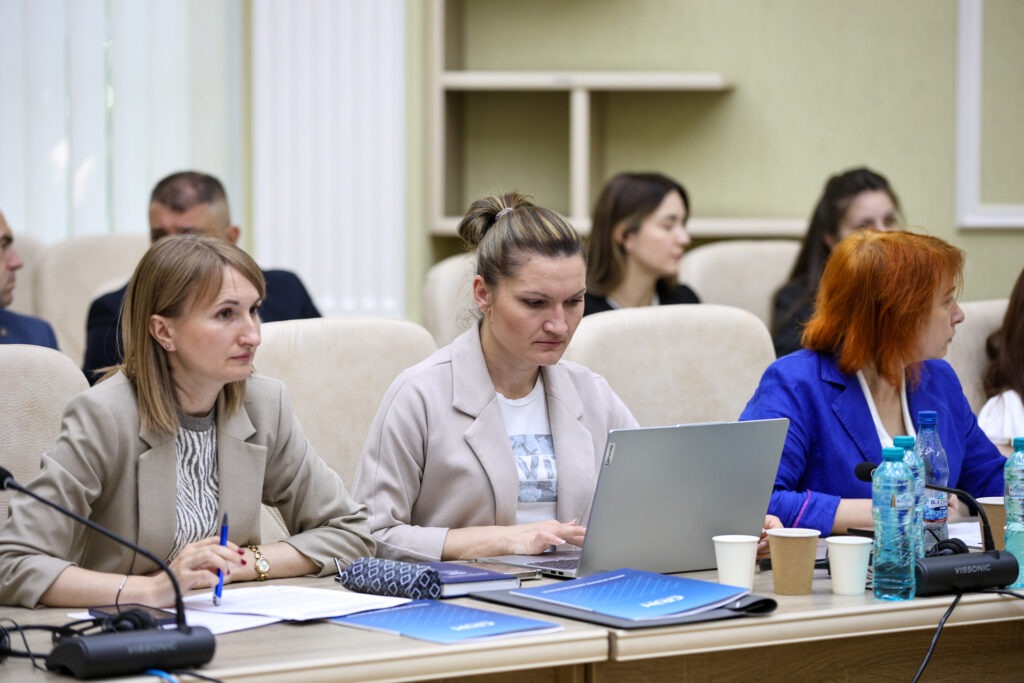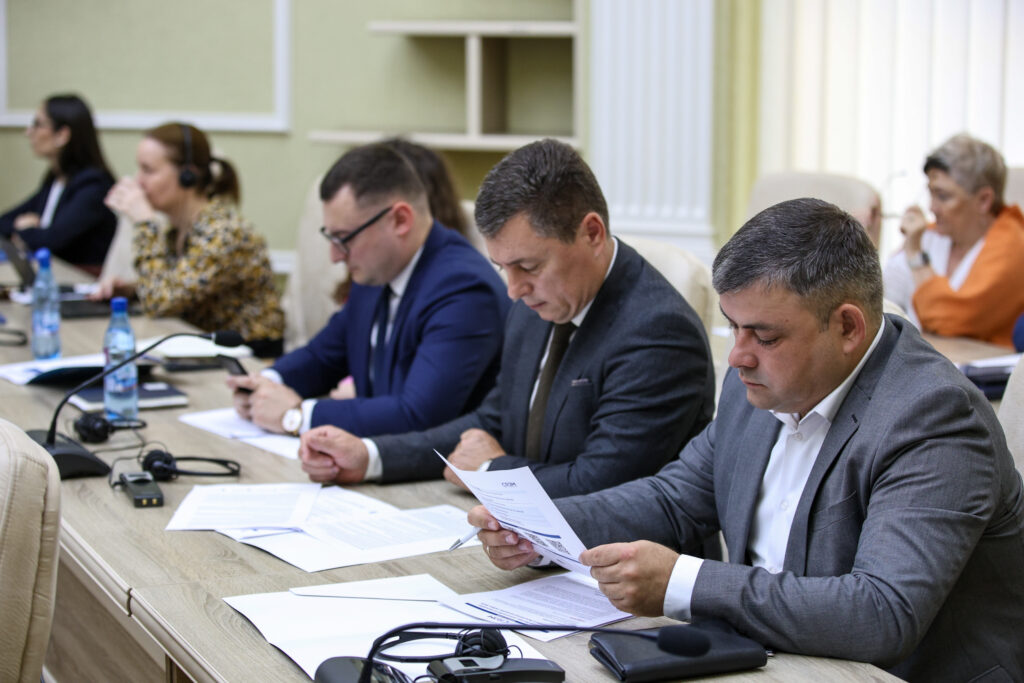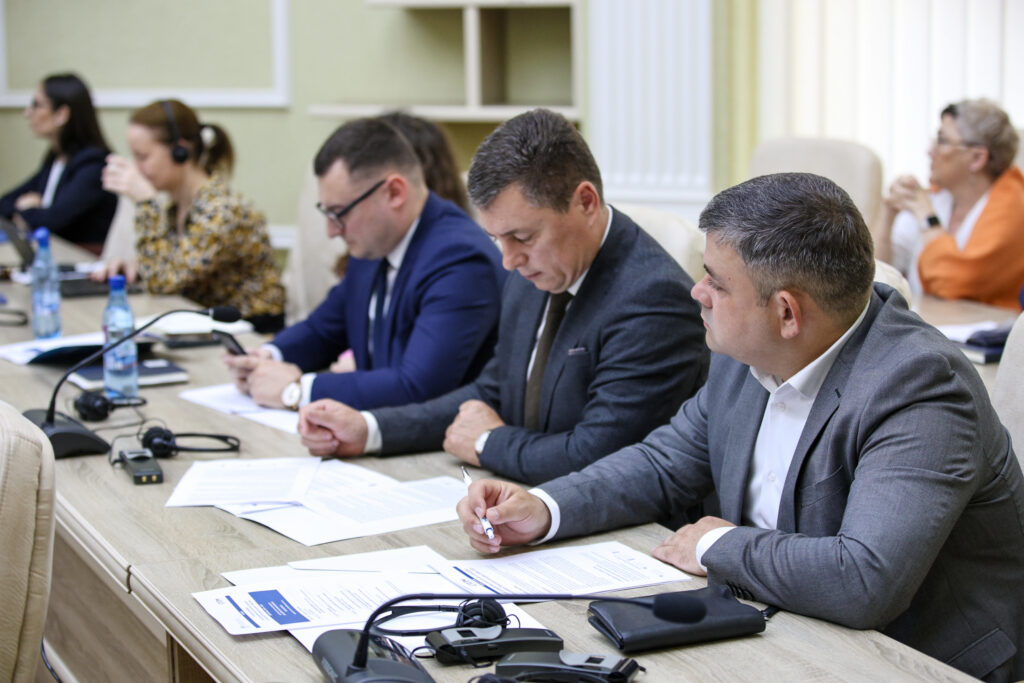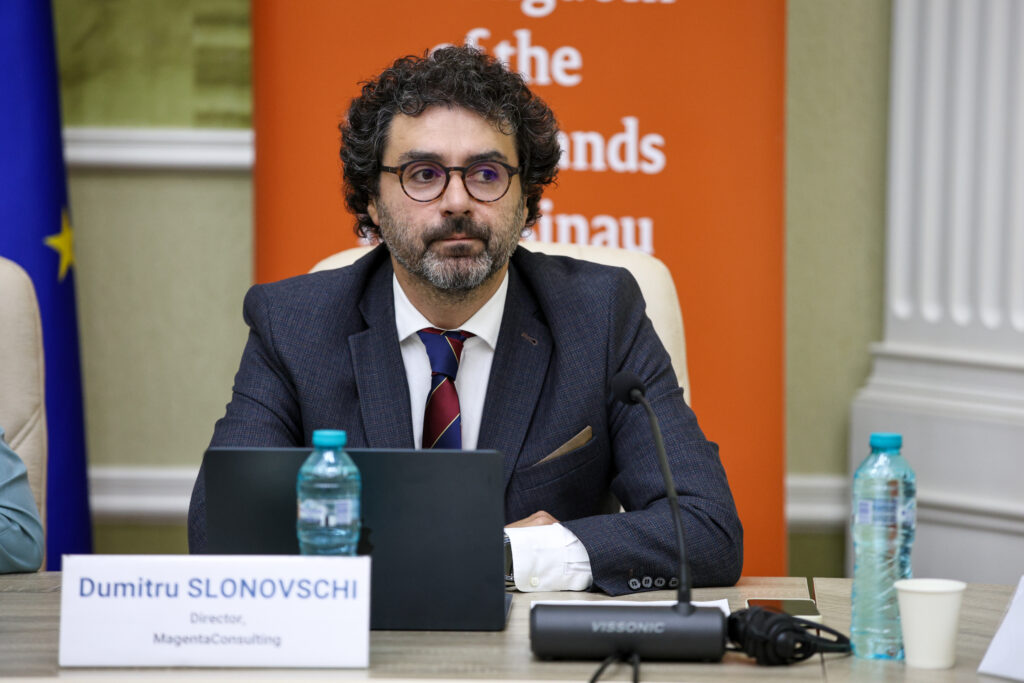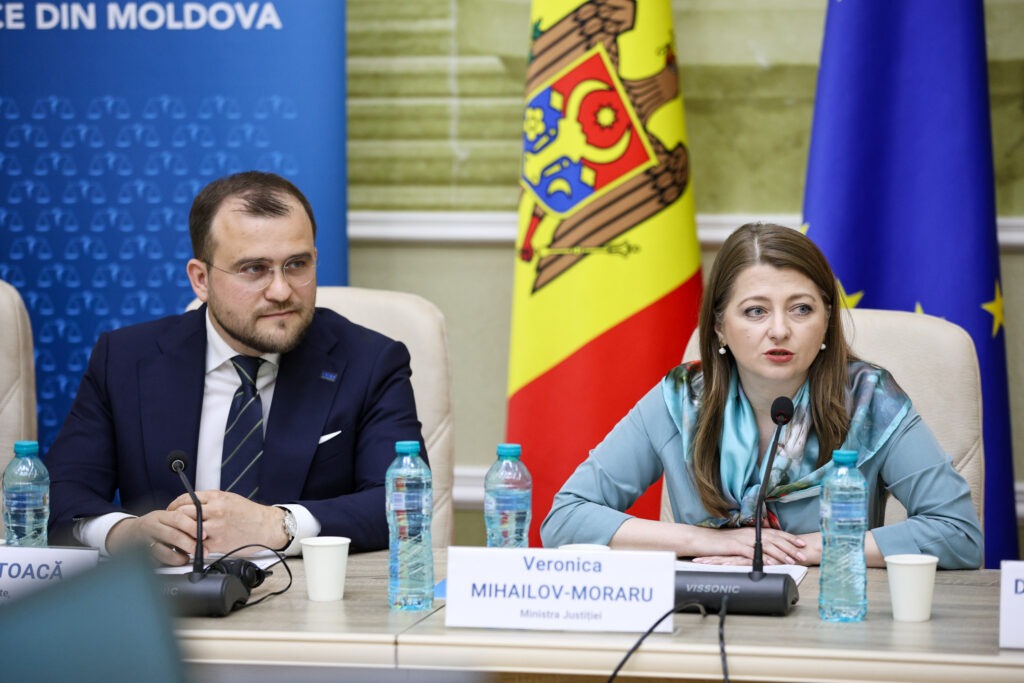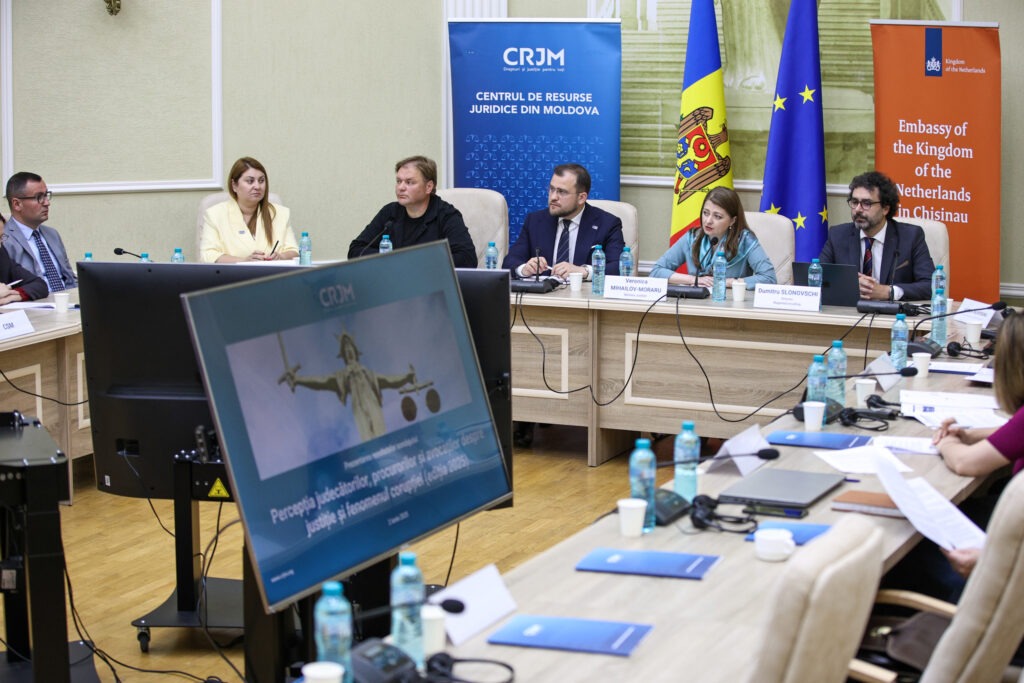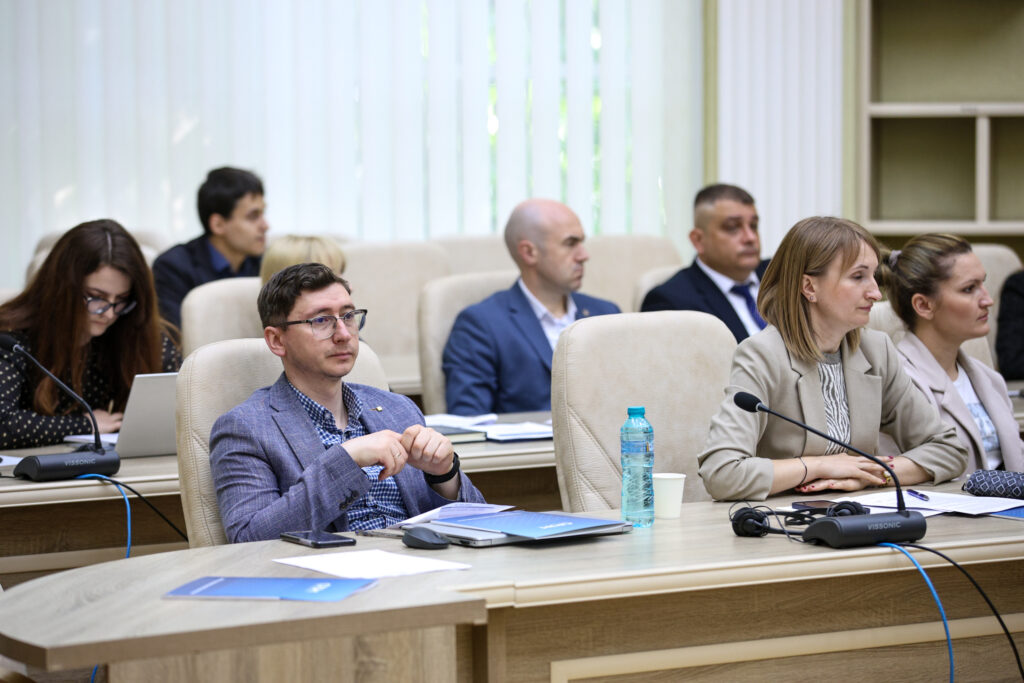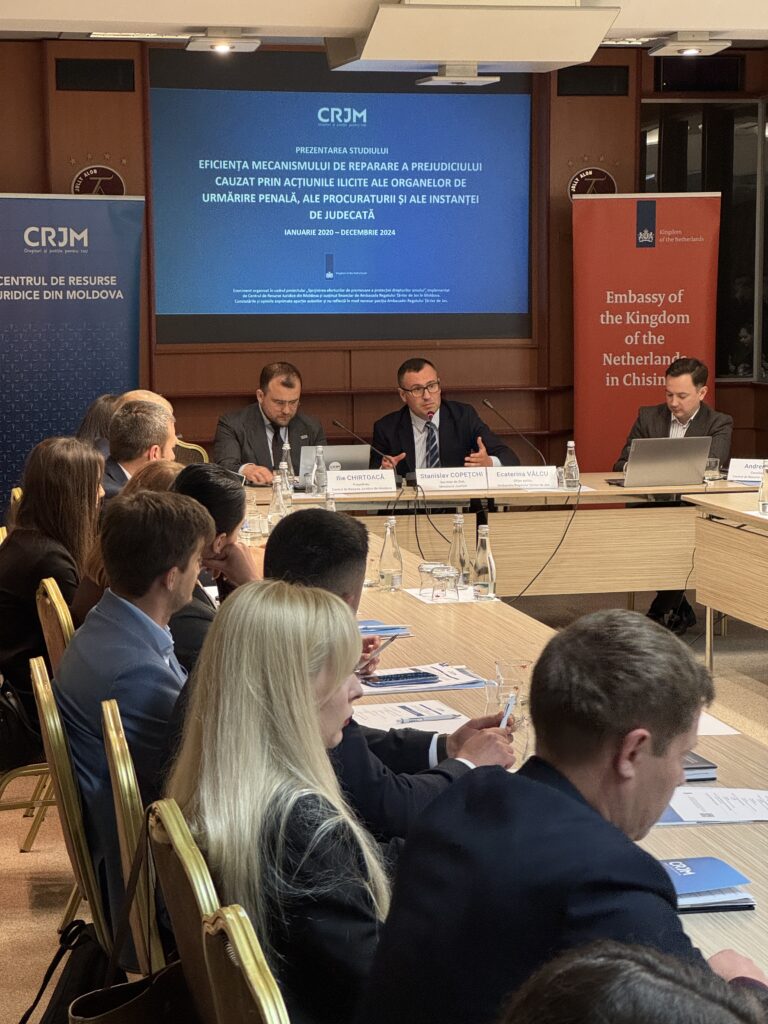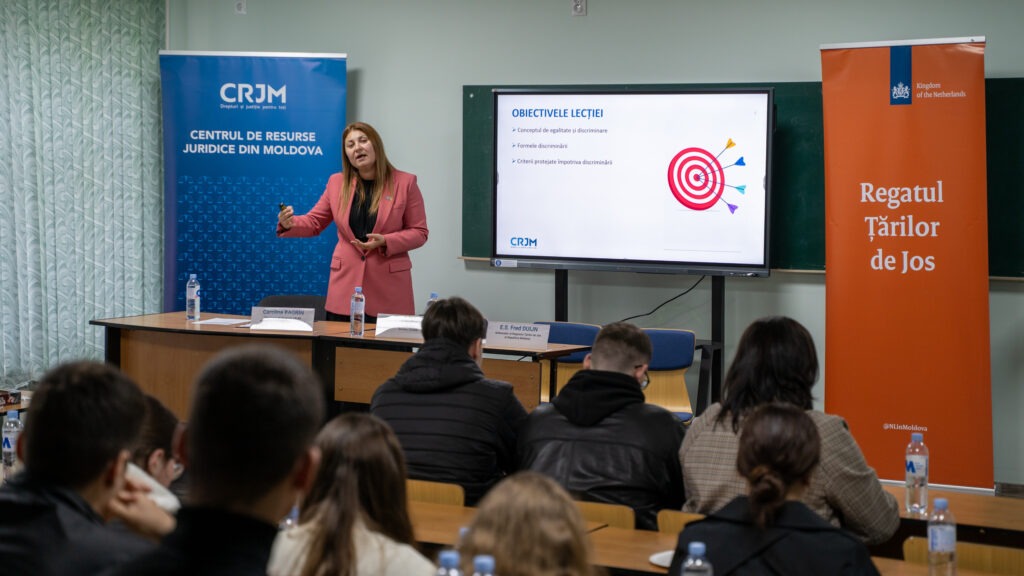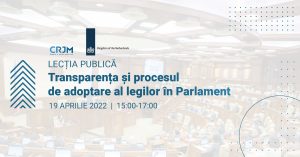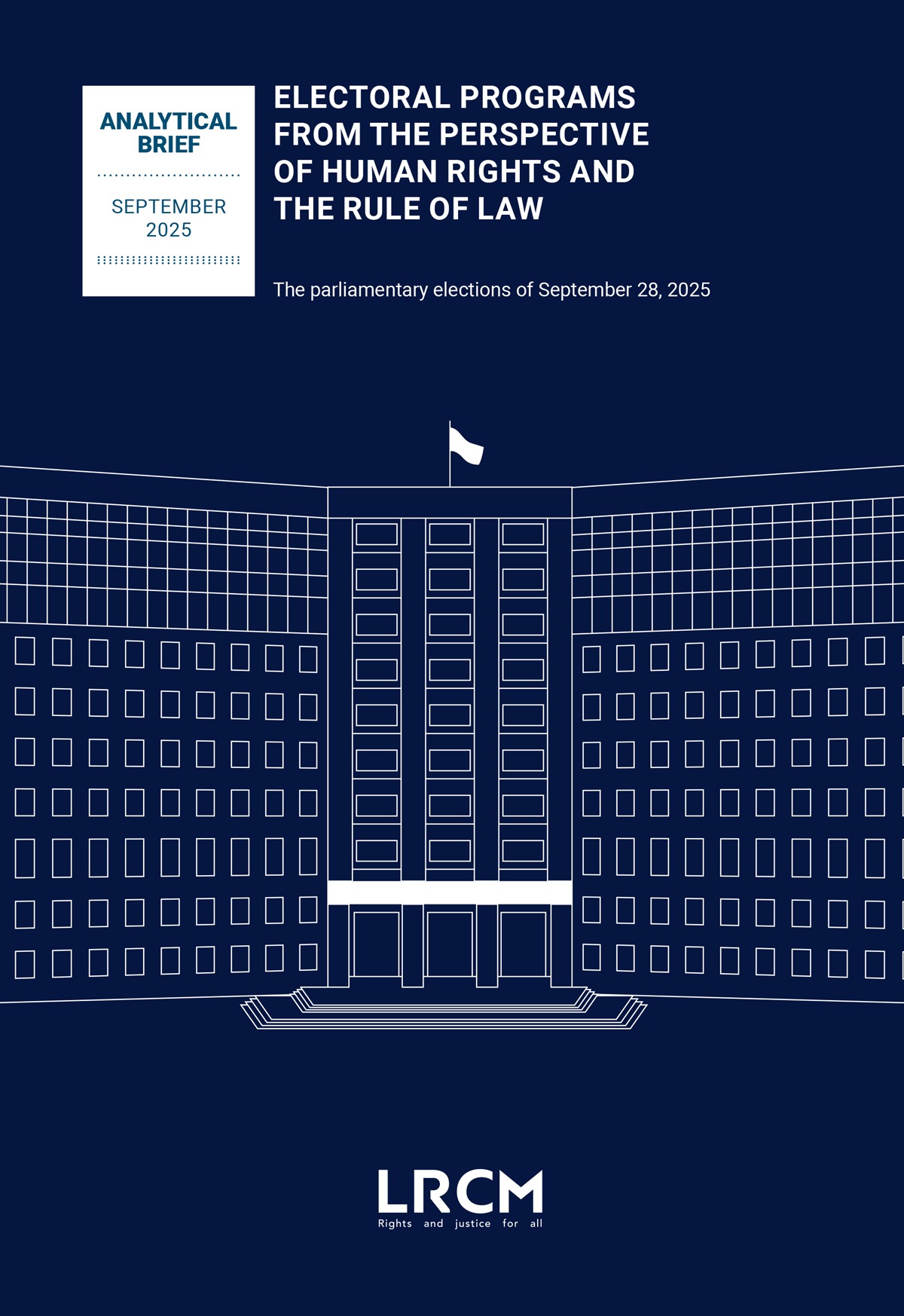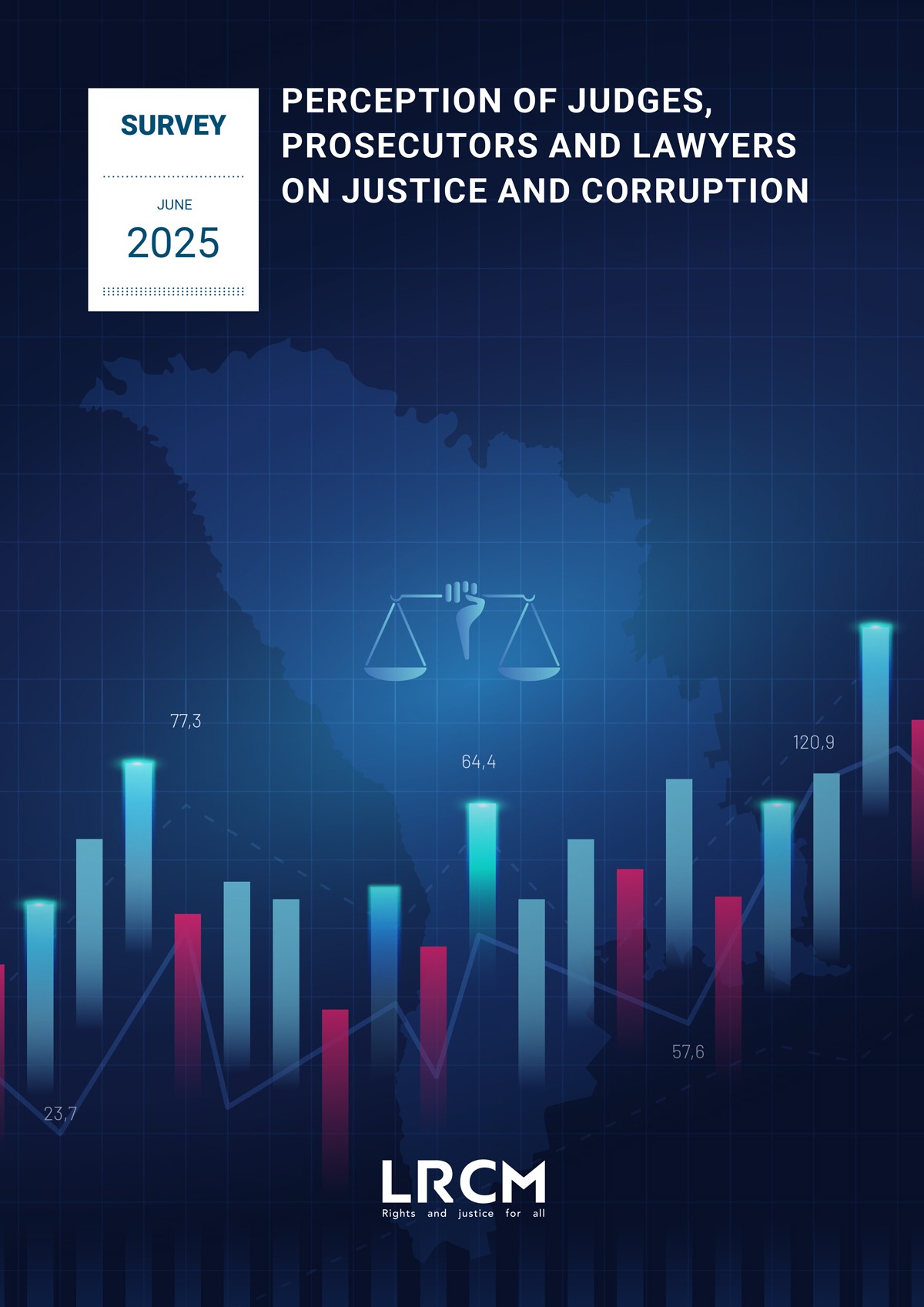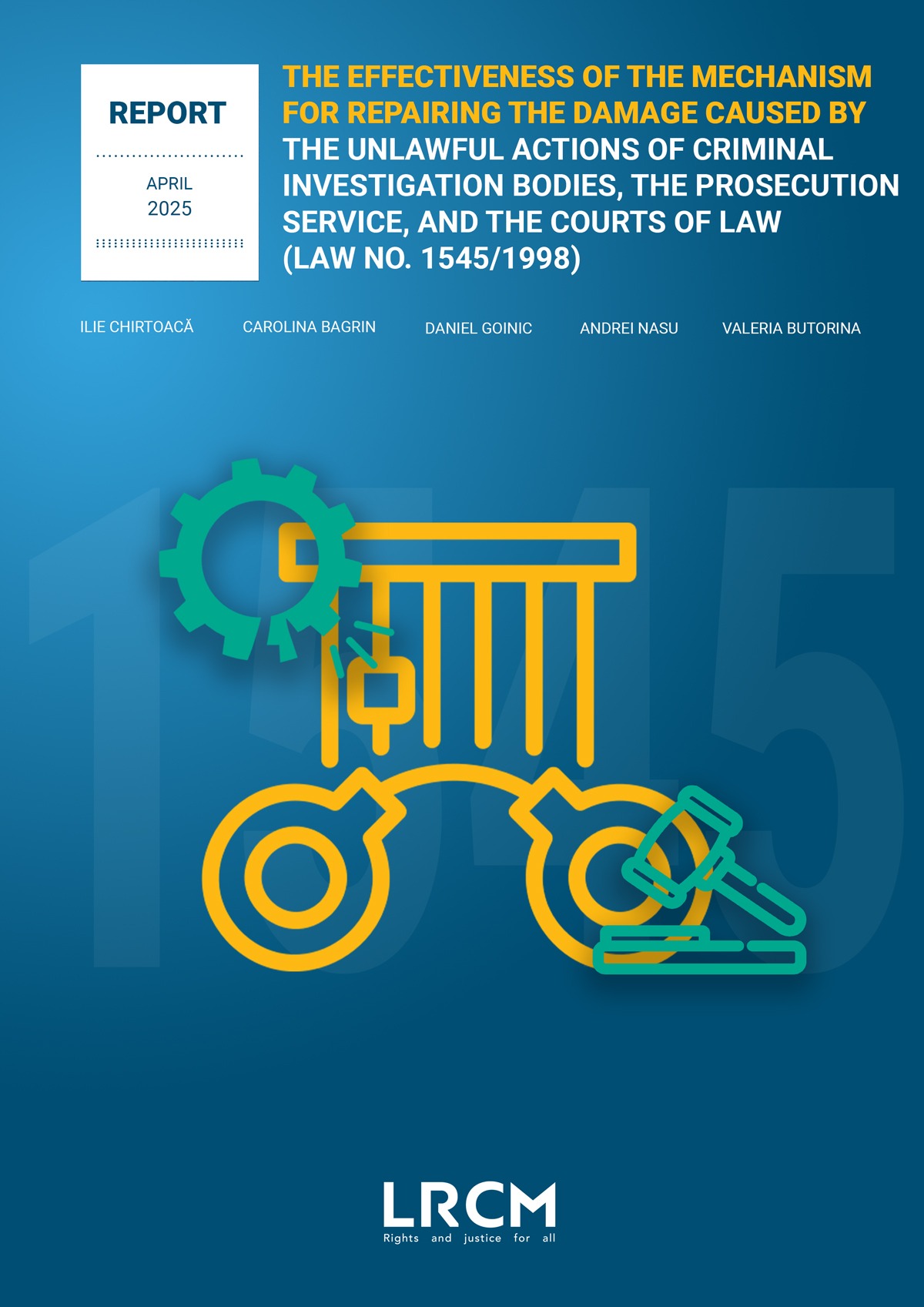72% of Lawyers, 46% of Prosecutors, and 37% of Judges Believe Corruption Is Widespread in Moldova. What Are the Main Causes?
More judges and prosecutors are willing to undergo external evaluation, but salary satisfaction has hit a historic low – only 6% of judges and 7% of prosecutors are content with their pay. At the same time, perceptions of corruption among justice professionals are on the rise: 72% of lawyers, 46% of prosecutors, and 37% of judges believe that corruption in the Republic of Moldova is widespread.
These are just some of the findings from the survey "Perceptions of Judges, Prosecutors, and Lawyers on Justice and Corruption", presented on Monday, 2 June 2025, during a public event attended by justice sector authorities, civil society representatives, members of the academic community, and development partners.
The research was based on comprehensive questionnaires completed by 476 judges, prosecutors, and lawyers. Its aim was to gather the views of justice professionals on the state of the justice system, ongoing reform initiatives, and the phenomenon of corruption. The survey was conducted between 17 February and 8 April 2025 by Magenta Consulting, at the request of the Legal Resources Centre from Moldova, and follows similar studies carried out in 2018, 2020, and 2023.
"This opinion survey, along with other similar studies, will be one of the tools considered in the development of the new Justice Sector Strategy for 2025–2030. The data provides a professional perspective on both the achievements and the challenges that need to be addressed responsibly," stated Minister of Justice, Veronica Mihailov-Moraru.
The data shows an increase in judges' positive self-assessment regarding their own independence, rising from 84% in 2020 to 93% in 2025. At the same time, lawyers’ opinions of judges have also improved — from 22% in 2020 to 50% in 2025. However, lawyers' perceptions remain significantly lower compared to judges' self-assessments.
Prosecutors consider themselves independent in their work at a rate of 65%, but only 31% of lawyers perceive prosecutors as independent.
Overall, judges report a positive development in their relationship with the Superior Council of Magistracy (SCM), with a notable increase in the perceived transparency of the Council’s activity — from 61% in 2020 to 83% in 2025. On the other hand, prosecutors' perception of the transparency of the Superior Council of Prosecutors (SCP) has declined, dropping from 77% in 2020 to 66% in 2025.
"The Legal Resources Centre from Moldova has been conducting this survey every two years since 2015 to analyze trends over time. We believe the survey is not just about perceptions, but also serves as a management tool — a barometer for institutions — because credible data is the foundation of credible and lasting reforms," stated Ilie Chirtoacă, Executive Director of the Legal Resources Centre from Moldova.
Another noteworthy aspect is the increased willingness of judges and prosecutors to undergo external evaluation. In 2025, 81% of judges and 70% of prosecutors stated they would accept external evaluation procedures, compared to 64% and 62%, respectively, in 2023.
On the other hand, lawyers' perceptions of the Bar Association show a downward trend compared to 2023. The most significant drop concerns the fairness of the Ethics Commission’s decisions — in 2025, only 54% of lawyers consider the Commission’s decisions to be fair, down from 82% in 2023. Among the most anticipated changes by lawyers are automated notifications for membership fee payments (94%), online transparency of lawyer contact information (83%), and the creation of a confidential correspondence system (78%).
When asked about gender equality in the justice system, only 46% of prosecutors, 45% of judges, and 34% of lawyers believe that gender equality in courts and prosecution offices has improved over the past five years. This perception has slightly declined compared to previous survey editions.
The overall perception of corruption among justice professionals is on the rise. In 2025, 72% of lawyers, 46% of prosecutors, and 37% of judges believe that there is a high or very high level of corruption in Moldova. Only 4% of judges and 1% of lawyers believe that corruption does not exist in the country.
According to judges, prosecutors, and lawyers, the most corrupt institutions are the Parliament and the Government, followed by the Police and the National Anticorruption Center. Judicial corruption is perceived as high by 61% of lawyers, compared to 29% of prosecutors and just 15% of judges. The prosecution service is considered corrupt by 65% of lawyers and 29% of judges. Only 38% of judges, 17% of prosecutors, and 33% of lawyers believe that the level of corruption has decreased in recent years.
The most frequently cited factors contributing to corruption include low salaries (94% of prosecutors, 78% of judges), lack of transparency (73% of lawyers), flaws in recruitment and promotion processes (83% of lawyers), and the lack of accountability for corrupt individuals (81% of lawyers).

